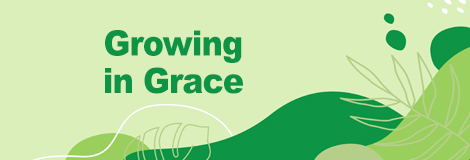| “These are the beasts which ye shall eat among all the beasts that a?re on the earth. Whatsoever parteth the hoof, and is clovenfooted, and cheweth the cud, among the beasts, that shall ye eat” (Leviticus 11:2-3). |
| Under Christianity we are permitted to eat any animal on this earth, for we read in 1 Timothy 4:4, “For every creature of God is good, and nothing to be refused, if it be received with thanksgiving.” But back in the Old Testament, when the nation of Israel was under the law, they were not to eat certain animals. In our verses today, we see two things that had to be true of land animals before they were allowed to eat them. |
| First of all, the animal had to be “clovenfooted;” that is, it had to have a double hoof. Quite a few animals have a cloven hoof, such as the cow, the pig, the goat, the sheep, the deer, the antelope and even the giraffe. Why were the Israelites permitted to eat only animals with a split hoof? There can be different thoughts as to this, but a cloven hoof probably is a picture to us of separation from evil. If an animal has only one part to its hoof, everything in that hoof is together. But if it has a cloven hoof, there is a separation. The hoof speaks of how we walk. |
| We who belong to the Lord are to be separate from this world and its wickedness, for we now have a new life in Christ, and are no longer part of this world. We are to walk a separate path, just as this law in Israel reminded them that they were to be a separate people for the Lord. |
| However, in order to be considered a clean animal, it had to do something else. That animal also needed to chew the cud. Animals who do this are called ruminants. We get our word “ruminate” from the same root, and this word means to think about something very carefully. What does chewing the cud mean? When a cow eats grass, it eats it quickly and swallows it. But then, sometime later, it brings that food back into its mouth, and chews it again. Then, when it swallows it the second time, it goes into a different part of its stomach. (A cow actually has four parts to its stomach.) |
| This means that we not only read or listen to the Word of God, but that we bring it back to our minds afterward, and think about it. This is important, for it is easy to read something and then quickly forget what we have read. But if we think carefully about what we have read, it becomes part of us, and we are more likely to act according to what we have read or heard. |
| In order for an animal to be clean for the Israelites, it had to have a cloven hoof, and also chew the cud. They could not eat the pig (no bacon!), for example, for although it has a cloven hoof, it does not chew the cud. They could not eat a rabbit, for although it chews the cud, it does not have a cloven hoof. We must remember both to be separate from the world, and to think about what we read in God’s Word. |
